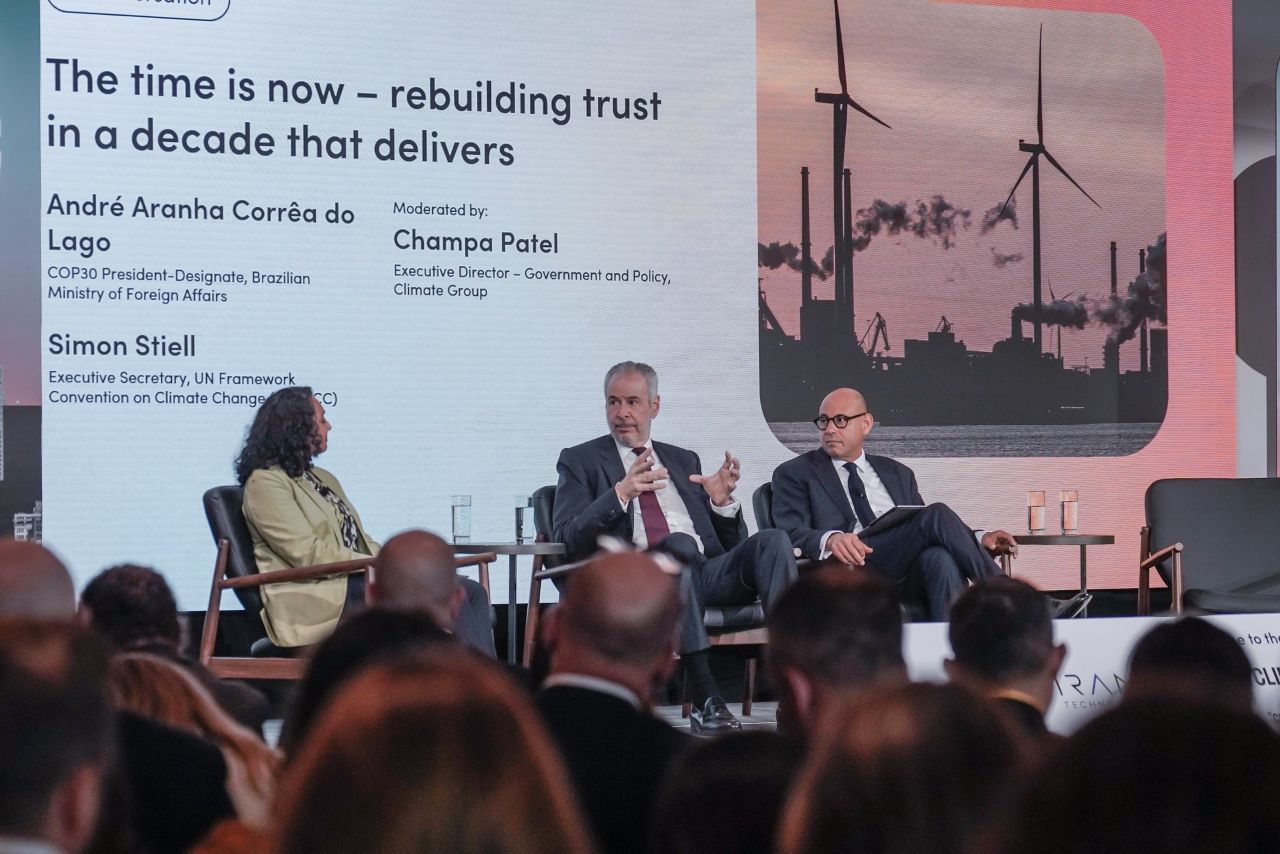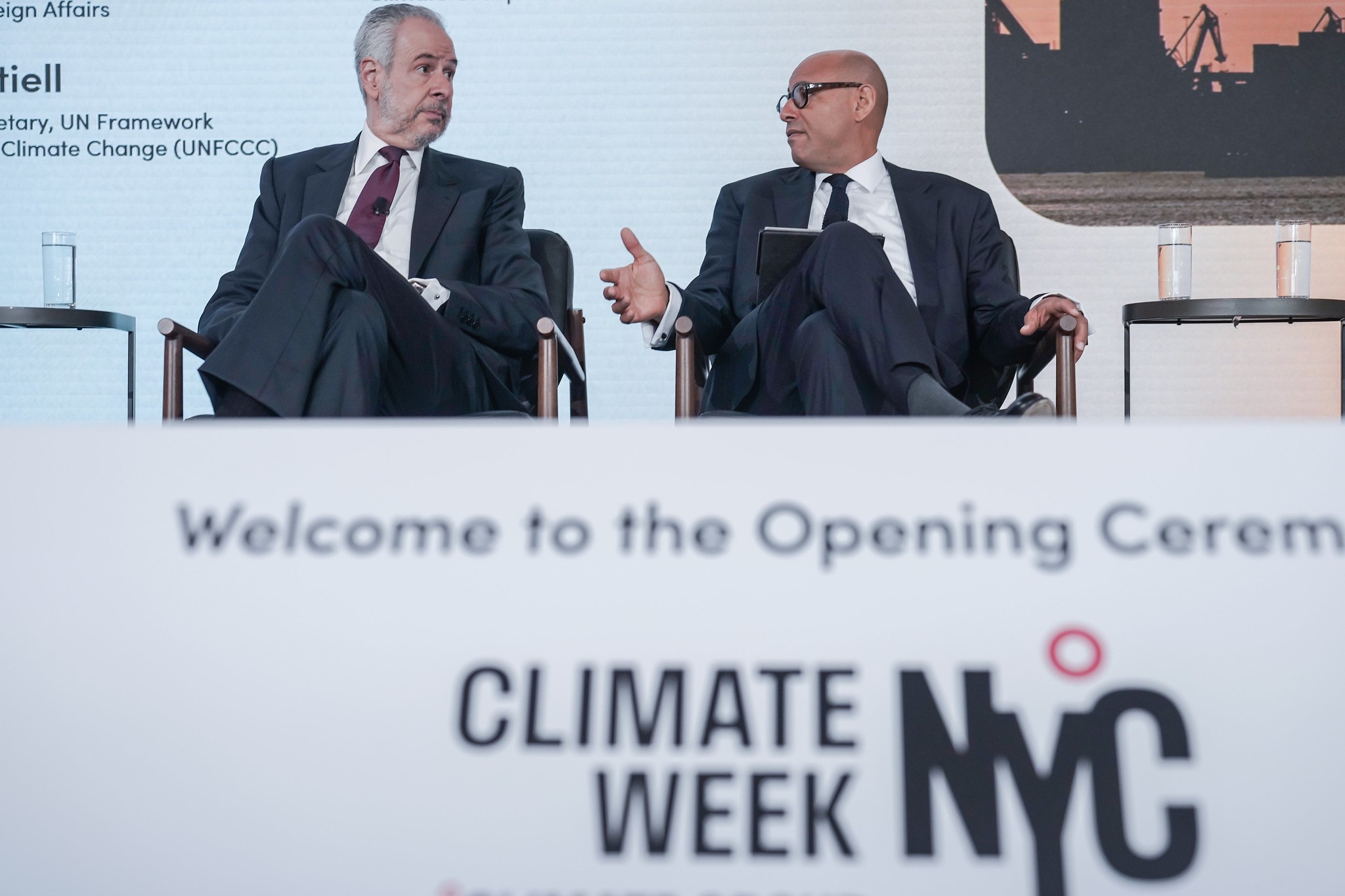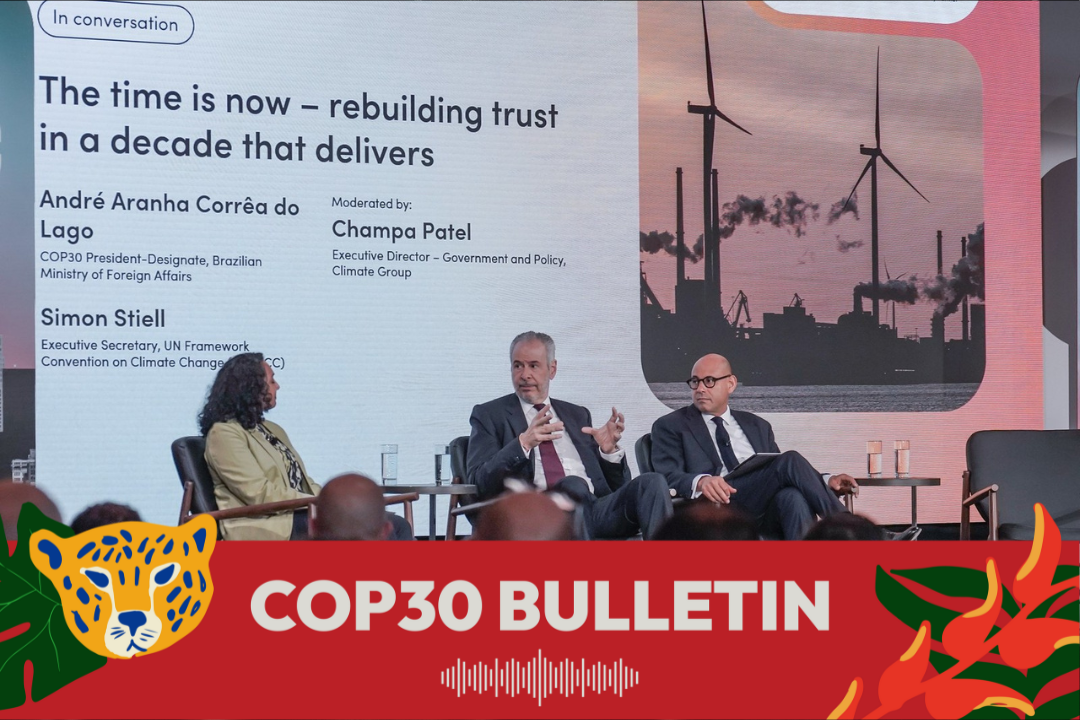At Climate Week NYC, COP30 Presidency Highlights the ‘Mutirão’—a Collective Effort—to Implement Climate Agreements
André Corrêa do Lago, President of COP30, and Simon Stiell, Executive Secretary of the UNFCCC, underscored the mobilizing role of the Conference set for November in Belém. The legacy they expect: moving from pledges to the implementation of agreements already made

By Mayara Souto / COP30
At the opening of Climate Week New York, COP30 was described as a pivotal moment to advance the implementation of existing climate accords and to chart the steps needed to mobilize $1.3 trillion in climate financing. The event, which opened on September 21 and runs through September 28, takes place alongside the 80th United Nations General Assembly, which begins tomorrow, September 23.
“From the very beginning of the COP30 presidency, we thought about using a concept all Brazilians know well—the mutirão,” said André Corrêa do Lago, President of COP30. “The idea behind a mutirão is that everyone contributes within their own capacity, provided they know the direction they are headed and can move forward independently.”
He also stressed the symbolism of holding the world’s largest climate conference in the Amazon. “The size of the Amazon in Brazil is larger than all of India, and 15.5 million people live there—75 percent of them in cities,” he told the audience, noting that solutions must address urban populations as well as traditional forest communities. “There are so many ideas coming from the Amazon. That alone, for me, already makes COP30 a success,” he added, highlighting that universities in the region have submitted a document with solutions for the 30 priorities of the COP30 Action Agenda.
Financing
According to Simon Stiell, Executive Secretary of the United Nations Framework Convention on Climate Change (UNFCCC), COP30 will be a moment to take stock of what has been achieved in the decade since the Paris Agreement and to present the Baku–Belém roadmap, which sets out how to mobilize $1.3 trillion in climate financing for developing countries.
“What COP30 offers us, first and foremost, is the chance to move away from the preconceived notion that each COP must accomplish everything,” Stiell said. “I believe these are expectations we have created that are not necessarily the most helpful. If we look at COP21 in Paris, that is where the framework was established. Those negotiations led us to COP28, where we had the first Global Stocktake, which gave us the opportunity to reassess where we stood and make course corrections.” The Global Stocktake, or GST, is a comprehensive assessment conducted every five years by the UNFCCC to evaluate progress in implementing Nationally Determined Contributions (NDCs).
Stiell noted that progress was made on climate finance at the most recent COP in Baku—though still far from sufficient—as commitments increased from $100 billion to $300 billion. Now, in Belém, the focus will be on how to reach the $1.3 trillion goal.
“We have had several COPs where this was on the agenda, but the discussion gains real momentum now at COP30, where all the components of the Paris Agreement are in place. The final pieces were agreed in Baku. The task now is for the world to mobilize and carry the work forward. We have the tools, the technologies—we know what needs to be done, how it needs to be done, who needs to do it, and when,” Stiell said.
Corrêa do Lago underscored that achieving implementation will require a collective effort—a mutirão. “We cannot expect governments to do everything. It is true that only governments can negotiate, but once those negotiations produce results, it is clear that subnational governments have an extraordinary role to play, as do businesses, technology, academia, and civil society at large,” he said. “We need to restore the sense that we are on the right track and that progress is being made.”
NDCs
Stiell also highlighted the progress made in the decade since the Paris Agreement took effect. “There are many criticisms of the process. It is slower than science recommends. It is very complex—but it is delivering results. If we look at this 10-year journey since Paris, before Paris the world was on track for a global temperature rise of 5°C. Now, we are closer to 3°C,” he said.
According to the Secretary, the new Nationally Determined Contributions (NDCs) will be crucial in gauging how committed countries are to narrowing the gap toward the Paris Agreement’s 1.5°C target. “We will not reach 1.5°C, but we will get to a point where we take a step forward. Therefore, progress is being made,” he noted.
The 195 signatories of the Agreement have until the end of September to submit their new NDCs. In October, the UNFCCC will publish a report evaluating the ambition of these commitments against the 1.5°C benchmark.
“We know the NDCs will be less ambitious than what science calls for. The focus when we arrive in Belém will not be on what countries have presented, but on how they will respond to those proposals. And the main response is to accelerate implementation. Simply make it happen,” Stiell concluded.


